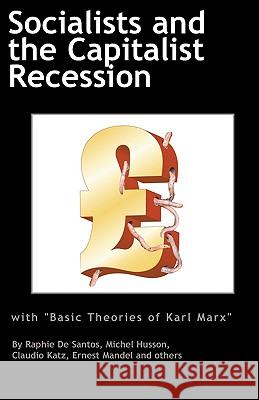Socialists and the Capitalist Recession & 'The Basic Ideas of Karl Marx' » książka
Socialists and the Capitalist Recession & 'The Basic Ideas of Karl Marx'
ISBN-13: 9780902869844 / Angielski / Miękka / 2009 / 216 str.
The credit crunch of 2008 produced an international recession in 2009. In this volume Claudio Katz and Michel Husson, both fellows of the International Institute for Research and Education, and Raphie de Santos lead an attempt not to only to describe the present crisis, but also to understand its causes and debate socialist solutions. Sean Thompson shows how neoliberal globalisation has an inbuilt tendency towards deflation. As explained in the article by Francois Sabado, the period since the turn of the century has been a disaster for American capitalism; first the catastrophe in Iraq and of the Bush government in general, and now an economic collapse that has completely undermined neoliberalism's 'Washington Consensus'. The ideologues of capitalism are on the defensive. But the Marxist explanation of the crisis has to be hammered home. Who caused this crisis? Why did it occur? What is it in capitalism that leads to the globalisation of poverty while a tiny elite become mega-wealthy? And what are possible alternatives? This book is a signal contribution to making those arguments."
The credit crunch of 2008 produced an international recession in 2009. In this volume Claudio Katz and Michel Husson, both fellows of the International Institute for Research and Education, and Raphie de Santos lead an attempt not to only to describe the present crisis, but also to understand its causes and debate socialist solutions.Sean Thompson shows how neoliberal globalisation has an inbuilt tendency towards deflation. As explained in the article by François Sabado, the period since the turn of the century has been a disaster for American capitalism; first the catastrophe in Iraq and of the Bush government in general, and now an economic collapse that has completely undermined neoliberalisms Washington Consensus. The ideologues of capitalism are on the defensive. But the Marxist explanation of the crisis has to be hammered home.Who caused this crisis? Why did it occur? What is it in capitalism that leads to the globalisation of poverty while a tiny elite become mega-wealthy? And whatare possible alternatives? This book is a signal contribution to making those arguments.











